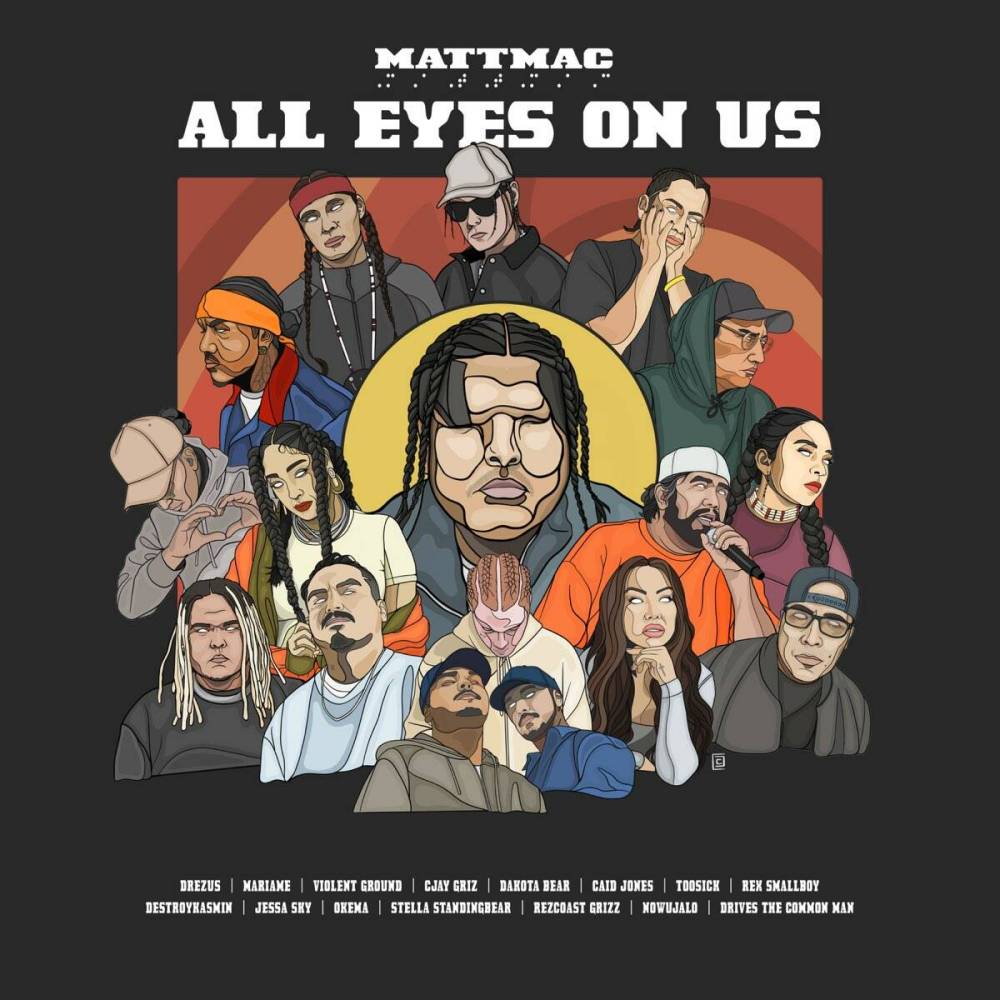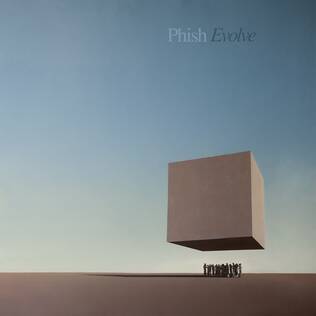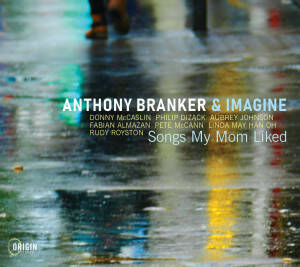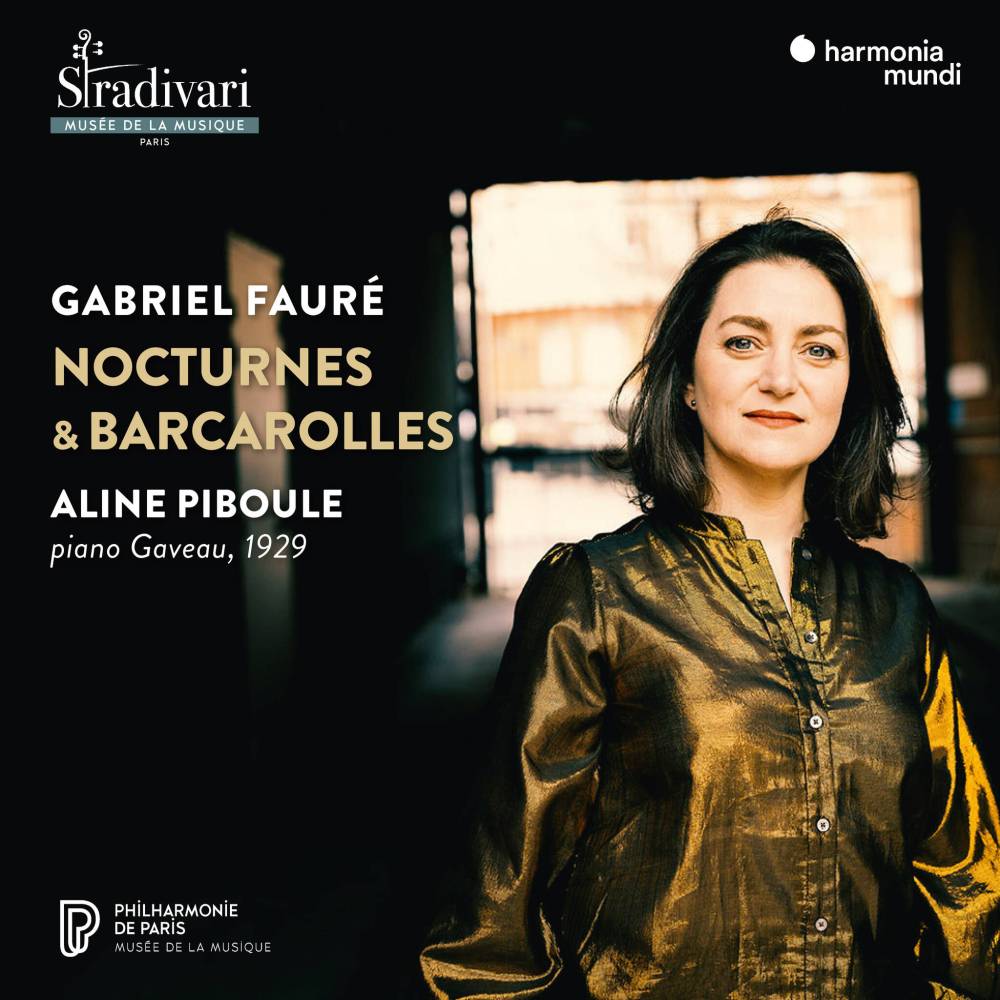New music: Mattmac, Phish, Anthony Branker & Imagine, Aline Piboule
Reviews of this week’s album releases
Advertisement
Read this article for free:
or
Already have an account? Log in here »
To continue reading, please subscribe:
Monthly Digital Subscription
$1 per week for 24 weeks*
- Enjoy unlimited reading on winnipegfreepress.com
- Read the E-Edition, our digital replica newspaper
- Access News Break, our award-winning app
- Play interactive puzzles
*Billed as $4.00 plus GST every four weeks. After 24 weeks, price increases to the regular rate of $19.00 plus GST every four weeks. Offer available to new and qualified returning subscribers only. Cancel any time.
Monthly Digital Subscription
$4.75/week*
- Enjoy unlimited reading on winnipegfreepress.com
- Read the E-Edition, our digital replica newspaper
- Access News Break, our award-winning app
- Play interactive puzzles
*Billed as $19 plus GST every four weeks. Cancel any time.
To continue reading, please subscribe:
Add Free Press access to your Brandon Sun subscription for only an additional
$1 for the first 4 weeks*
*Your next subscription payment will increase by $1.00 and you will be charged $16.99 plus GST for four weeks. After four weeks, your payment will increase to $23.99 plus GST every four weeks.
Read unlimited articles for free today:
or
Already have an account? Log in here »
Hey there, time traveller!
This article was published 12/07/2024 (476 days ago), so information in it may no longer be current.
HIP HOP
Mattmac: All Eyes on Us (N’we Jinan Records/Mattmac Music Group)
‘You don’t know ’bout Mattmac? You better log on.”
So says M’ikmaq rapper Drives the Common Man on At Home, the track he shares with Mattmac on the Manitoba hip-hop artist’s broad-ranging new album of collaborations with fellow Indigenous artists, All Eyes on Us.
He’s not wrong, either. Mattmac, a.k.a. Matthew Monias, is a mostly self-taught Oji-Cree rapper, singer, musician and producer — who also happens to be blind — from the fly-in community of Garden Hill First Nation, located almost 500 kilometres north of Winnipeg. When Mattmac was 16, N’we Jinan, a Quebec-based program that teaches music production in First Nations communities across Canada, visited Garden Hill and the young creator was hooked.
His first widely released song and video, Help You See, garnered hundreds of thousands of views and word quickly spread that he is a special talent. Mattmac has since released two albums — 20/20 in 2020, and Blurred Visions in 2022 — and he’s also won an armload of awards and accolades, including CBC Music’s 2023 Searchlight contest with Rez (Remix), a track that tells his origin story, featuring Indigenous rappers Dakota Bear and Okema, and which closes All Eyes On Us.
The full album is an 18-track, 58-minute excursion showcasing Mattmac’s many layers as he works with 15 different Indigenous singers and rappers. His production style is rooted in minimalist, trap beats, augmented by keyboards and synths, with melodies often derived from the vocal lines that he and/or his collaborators drop, yet it knows no stylistic boundaries.
The songs tell the story of his life, laying bare his truths, his insecurities, and his hopes for the future. There are R&B-flavoured cuts such as Find My Love, featuring Quebec Cree-Algerian vocalist Mariame, or Imposters, featuring Utah rapper Stella Standingbear, but Mattmac also pays homage to the angry origins of Indigenous hip hop with Give It Time, featuring Rex Smallboy (co-founder of the great War Party), and the inclusion of the late Caid Jones on Ash, which also features Dakota Bear, serves as a poignant reminder of just how precious life and joy and music.
All Eyes on Us is available on all streaming platforms — so log on.
★★★★ out of five stars
Stream: Give It Time, Imposters, Ash, Rez (Remix)
— John Kendle
JAM BAND
Phish: Evolve (Jemp)
There might never be a more apt title for a Phish album than Evolve, the jam masters’ 16th studio album and first in over four years.
Just as this boundary-pushing quartet has progressed over four-plus decades by fusing rock, jazz, bluegrass and other freewheeling sounds, Evolve has a familiarly amorphous feel.
Because Phish’s fiercely dedicated fan base is rooted in the experiential immersion of the live shows — no two nights are the same — this actual album could be considered an afterthought compared to other bands. Many of the 12 tracks on Evolve have been in rotation at their shows throughout the last few years.
Still, Evolve starts strong enough to hook both a Phish skeptic and the diehard who’s been to two dozen shows. The bouncy opener, Hey Stranger, rides a catchy staccato beat and minor-key melody into a vintage jam by frontman/guitarist Trey Anastasio and drummer Jon Fishman.
Anastasio has said in recent interviews that he believes the band is just hitting its stride as the members move into their 60s, and this album gives plenty of reason to keep it going.
The energy and urgency persist throughout the first few songs, from Hey Stranger into the bluesy Oblivion and then onto the title track. The latter is the ideal opportunity for the uninitiated listener to join the fun, with its sweet melody, pulsating beat driven by bass guitarist Mike Gordon, and lyrical beauty.
A Wave of Hope is ’70s-style rock with space for Page McConnell to pound on the keys amid racing guitar riffs. That’s the era of music the band grew up with along the East Coast, after all — the freewheeling foursome formed in 1983 at the University of Vermont.
The pace downshifts a bit with Pillow Jets, a track that winds into cacophonic chaos — the same that a showgoer could blissfully drift away in, or that another listener might lose interest in.
Life Saving Gun gives the guys another four-plus minutes to let loose and rock out while Mercy is a sleepy and syrupy closer, an anticlimactic finish to the album.
But it’s hard to fault this humble band for feeling sentimental at this point in a fascinating career — one marked with an unwavering following despite no big hits.
★★★1/2 out of five
Stream: Hey Stranger, Evolve, Life Saving Gun
—Dave Campbell, The Associated Press
JAZZ
Anthony Branker & Imagine: Songs My Mom Liked (Origin)
Tribute albums are common in the jazz world, so this is not an unusual concept. Leader/composer Anthony Branker offers this unabashed tribute of love and thanks to his mother.Apparently she is suffering cognitive decline, but Branker credits her for encouraging him in his life pursuits and sacrificing to ensure he had opportunities. The band feautres Donny McCaslin on saxes, Philip Dizack on trumpet, Fabian Almazan on piano, Linda May Han Oh on bass, Rudy Royston on drums, Pete McCann on guitar and some vocals by Aubrey Johnson.
The music moves through many moods and tempos, with solid work by all members. McCaslin and Dizack are standouts from start to finish. They carry the main weight of the music, with melodic solos on tracks such as Sketches of Selim to flat-out driving riffs on To Be Touched (By the Spirit). Bassist Oh and pianist Almazan have numerous beautiful solos.
Pointing out that a lot of the compositions have a distinct retro feel is not a criticism. The playing is universally clean and at times intense, but especially in unison moments, with sax and trumpet leading the melody, there is a familiarity from an earlier day. It is extremely endearing and enjoyable.
Other tracks offer a serious message, such as The Holy Innocent (For KB and the Children of Gaza) or Imani (Faith). Branker’s writing has terrific melodies that offer room for solos that are smoothly integrated. The melodies have an accessible style that is perhaps the reason they seem familiar while being freshly recorded.
Jazz isn’t always required to explore new directions. This is solid, sometimes powerful and always heartfelt music that doesn’t need to break new ground. What it does is quite enjoyable by itself.
★★★1/2 out of five
Stream: Sketches of Selim, To Be touched (By the Spirit)
— Keith Black
CLASSICAL
Gabriel Fauré: Nocturnes and Barcarolles: Aline Piboule, piano Gaveau, 1929 (Harmonia Mundi)
France’s Aline Piboule brings her luminous pianism to a program of Fauré’s solo keyboard works, performed on a rare piano Gaveau dated 1929 — five years after the composer’s death in 1924.
Through her self-curated selection of four nocturnes and seven barcarolles, listeners are able to follow Fauré’s stylistic evolution, from his earliest influences of Chopin and Schumann, to more adventuresome harmonies and textures of his later compositional life.
Highlights include Barcarolle No. 3 in G-flat Major, Op. 42 and Barcarolle No. 5 in F-sharp Major, Op. 66, with the latter swelling like a rising tide before subsuming into its more peaceful close.
Barcarolle No. 9 in A minor, Op. 101 is infused with grave solemnity, while Barcarolle No. 13 in C-major, Op. 116 further displays Piboule’s sparkling technique.
Of the nocturnes, both the highly emotive Nocturne No. 11 in F-sharp Minor and lovely, lilting Nocturne No. 12 in E-minor, Op. 107, may be considered standouts, as is Nocturne No. 13 in B-minor, Op. 119, which pushes tonality to its outermost limits.
Last but not least, the simply titled Improvisation, Op. 84/5 — originally composed in 1901 as a sight-reading piece for exam students at the Paris Conservatoire — opens the album, providing the first taste of Piboule’s sensitive artistry while only whetting the appetite for more.
★★★★ out of five
Stream: Barcarolle No. 13 in C-major, Op. 116; Nocturne No. 12 in E- minor, Op. 107; Nocturne No. 13 in B-minor, Op. 119
— Holly Harris





